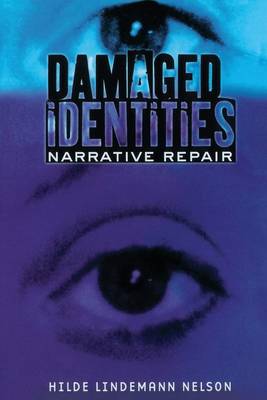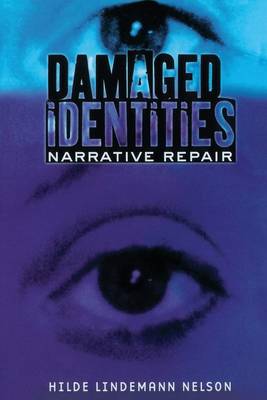
- Afhalen na 1 uur in een winkel met voorraad
- Gratis thuislevering in België vanaf € 30
- Ruim aanbod met 7 miljoen producten
- Afhalen na 1 uur in een winkel met voorraad
- Gratis thuislevering in België vanaf € 30
- Ruim aanbod met 7 miljoen producten
Damaged Identities, Narrative Repair
Worker Risk and Opportunity in the New Economy
Hilde Lindemann NelsonOmschrijving
Hilde Lindemann Nelson focuses on the stories of groups of people--including Gypsies, mothers, nurses, and transsexuals--whose identities have been defined by those with the power to speak for them and to constrain the scope of their actions. By placing their stories side by side with narratives about the groups in question, Nelson arrives at some important insights regarding the nature of identity. She regards personal identity as consisting not only of how people view themselves but also of how others view them. These perceptions combine to shape the person's field of action. If a dominant group constructs the identities of certain people through socially shared narratives that mark them as morally subnormal, those who bear the damaged identity cannot exercise their moral agency freely.Nelson identifies two kinds of damage inflicted on identities by abusive group relations: one kind deprives individuals of important social goods, and the other deprives them of self-respect. To intervene in the production of either kind of damage, Nelson develops the counterstory, a strategy of resistance that allows the identity to be narratively repaired and so restores the person to full membership in the social and moral community. By attending to the power dynamics that constrict agency, Damaged Identities, Narrative Repair augments the narrative approaches of ethicists such as Alasdair MacIntyre, Martha Nussbaum, Richard Rorty, and Charles Taylor.
Specificaties
Betrokkenen
- Auteur(s):
- Uitgeverij:
Inhoud
- Aantal bladzijden:
- 228
- Taal:
- Engels
Eigenschappen
- Productcode (EAN):
- 9780801436659
- Verschijningsdatum:
- 9/03/2001
- Uitvoering:
- Hardcover
- Formaat:
- Genaaid
- Afmetingen:
- 159 mm x 237 mm
- Gewicht:
- 517 g

Alleen bij Standaard Boekhandel
Beoordelingen
We publiceren alleen reviews die voldoen aan de voorwaarden voor reviews. Bekijk onze voorwaarden voor reviews.











